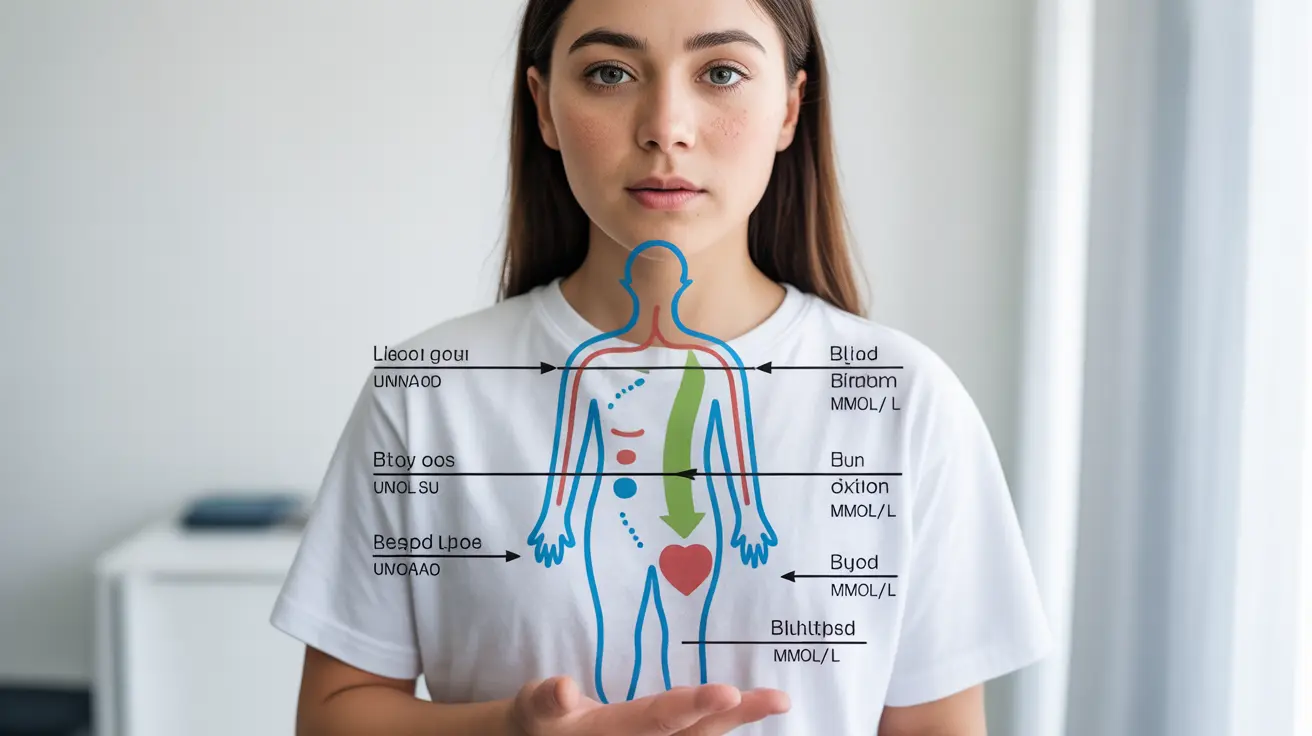For people living with diabetes, maintaining proper hydration is crucial for health and blood sugar management. The relationship between diabetes and dehydration is complex and interconnected, with each condition potentially worsening the other if not properly managed. Understanding this connection can help prevent serious complications and maintain better overall health.
This comprehensive guide explores how diabetes affects hydration, recognizing warning signs, and implementing effective prevention strategies to stay healthy and well-hydrated.
The Link Between High Blood Sugar and Dehydration
When blood glucose levels rise above normal, the body attempts to eliminate excess sugar through increased urination. This process, known as osmotic diuresis, forces the kidneys to work harder and produces more urine, leading to significant fluid loss. As the body loses water through frequent urination, the risk of dehydration increases substantially.
This cycle can become particularly dangerous because dehydration can further concentrate blood sugar levels, potentially creating a harmful feedback loop that may lead to serious complications.
Recognizing Early Warning Signs
Identifying dehydration symptoms early is essential for people with diabetes. Common early indicators include:
- Increased thirst
- Dark-colored urine
- Dry mouth and lips
- Fatigue or weakness
- Dizziness
- Decreased urination frequency
- Headache
For individuals with diabetes, these symptoms may appear alongside signs of high blood sugar, making it crucial to monitor both conditions carefully.
The Dangerous Progression to DKA
Severe dehydration in diabetes can contribute to the development of diabetic ketoacidosis (DKA), a serious condition requiring immediate medical attention. When the body lacks sufficient insulin and becomes dehydrated, it begins breaking down fat for energy, producing ketones that can make blood dangerously acidic.
Warning Signs of DKA Include:
- Rapid breathing
- Fruity-smelling breath
- Nausea and vomiting
- Severe abdominal pain
- Mental confusion
- Extreme fatigue
Prevention Strategies for Staying Hydrated
Managing hydration with diabetes requires a proactive approach. Key prevention strategies include:
- Drinking water regularly throughout the day
- Monitoring blood sugar levels as recommended
- Limiting caffeine and alcohol intake
- Carrying water when exercising or in hot weather
- Adjusting fluid intake during illness
- Keeping track of daily fluid consumption
When to Seek Medical Help
Certain symptoms warrant immediate medical attention. These include:
- Severe thirst that doesn't improve with fluid intake
- Little or no urination for 12 hours or more
- Blood sugar levels that remain high despite medication
- Rapid heartbeat and breathing
- Confusion or altered mental state
- Severe weakness or lethargy
Frequently Asked Questions
How does high blood sugar in diabetes lead to dehydration? High blood sugar causes increased urination as the body tries to eliminate excess glucose. This process leads to significant fluid loss, potentially resulting in dehydration if fluids aren't adequately replaced.
What are the early signs of dehydration related to diabetes? Early signs include increased thirst, dark urine, dry mouth, fatigue, dizziness, and decreased urination frequency. These symptoms may be more pronounced when blood sugar levels are elevated.
How can dehydration worsen diabetes and lead to diabetic ketoacidosis (DKA)? Dehydration concentrates blood sugar levels and can trigger the body to break down fat for energy, producing ketones. This combination can lead to DKA, a serious condition requiring emergency medical care.
What steps can people with diabetes take to prevent dehydration? Prevention includes regular water intake, monitoring blood sugar levels, limiting dehydrating beverages, increasing fluid intake during exercise or hot weather, and maintaining a consistent hydration schedule.
When should someone with diabetes seek medical help for dehydration symptoms? Seek immediate medical attention if experiencing severe thirst that doesn't improve with drinking, minimal urination over 12 hours, persistently high blood sugar, rapid breathing, confusion, or severe weakness.




